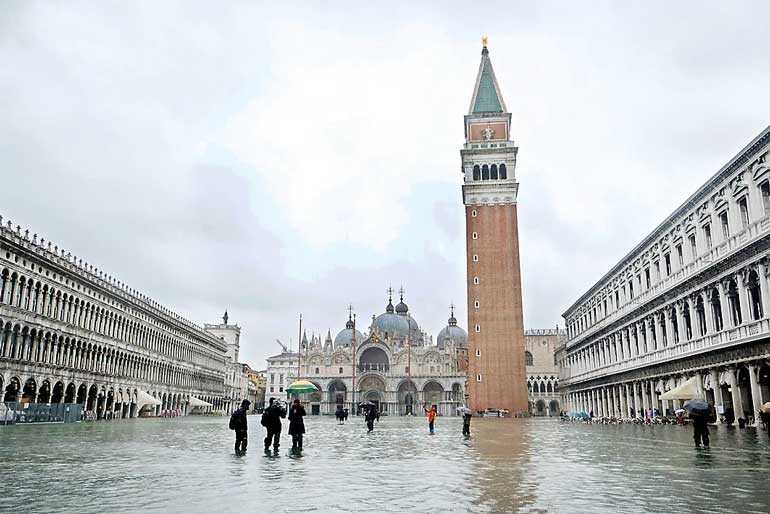Friday Feb 20, 2026
Friday Feb 20, 2026
Thursday, 28 November 2019 02:28 - - {{hitsCtrl.values.hits}}

FILE PHOTO: People wade through the flooded St. Mark's Square during a period of seasonal high water in Venice, Italy - Reuters
LONDON (Reuters): Governments face a struggle at a United Nations summit in Spain next week to inject momentum into efforts to curb global warming, dogged by lack of consensus, US scepticism and disruptive protests demanding more action.
Policymakers are under pressure as more extreme weather events, such as record floods in Venice and wildfires in Australia and California, are linked to climate change.
“The science is clearer and the devastating impacts of climate change continue across every region in the world,” said analysts at HSBC.
“The silver lining is that public awareness has been growing and may raise the pressure to act, however bold and ambitious policies are sparse because of economic and geopolitical events,” they added.
The annual UN climate conference, known as COP25 this year, aims to tackle outstanding issues around the Paris Agreement to limit a rise in global temperatures to between 1.5 and 2 degrees Celsius.
As current pledges under the agreement will not be enough to curb temperature rises and easily overshoot the 2C limit, countries have agreed to present more ambitious commitments by 2020 and every five years after that.
The two-week event will start on 2 December in Madrid, after its original host, the Chilean capital Santiago, withdrew last month due to riots over inequality.
US President Donald Trump’s administration has started the process of withdrawing from the Paris Agreement, while Brazil has been criticised for developing the Amazon region for farming and mining amid concern over deforestation.
The European Union and Britain are grappling with Brexit and there is a snap UK general election on 12 December. A new EU Commission will also start work on 1 December, a day before the conference, which will see the current climate commissioner Miguel Arias Canete replaced with Frans Timmermans. Last year, nations agreed on a framework for implementing the Paris Agreement, breaking it down into themes such as how countries will report and monitor their national pledges to curb emissions and update their plans for emission cuts.